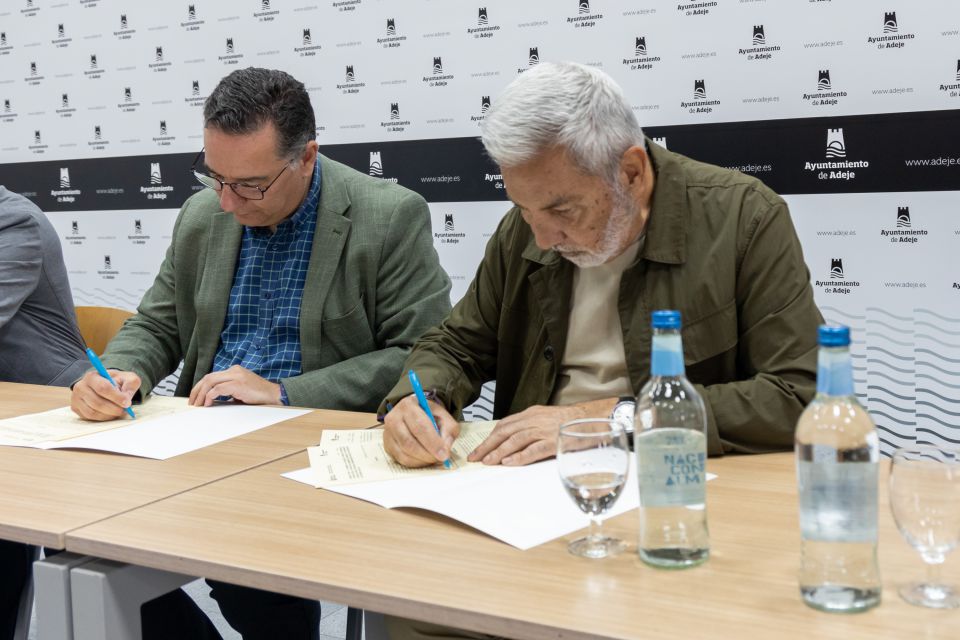The Canarian Ministry of Education, Vocational Training, Physical Activity and Sports and Adeje Town Hall signed a framework agreement to co-finance projects that improve the educational infrastructure of the municipality, a network of centres that in recent years has seen an increase in school demand due to the large population growth of the region.
The agreement, signed by the regional education councillor Poli Suarez, and Adeje mayor Jose Miguel Rodriguez Fraga, includes actions such as the construction of a public school in Tijoco-La Hoya and an integrated vocational training centre (CIFP), which will relocate training cycles in hospitality and tourism, food industries, administration and management, and computer and communications skills, which are currently offered in secondary schools in the municipality.
These new facilities will work, say the authorities, to reduce pressures that the existing centres are under and meet the high demand for school places in Adeje. The agreement will also see those existing centres adapting to meet other educational needs. The council have already given over the former ‘Niño de Adeje’ crèche for conversion into a special education centre (CEE), offering improved schooling for pupils with special educational needs in the area. There will also be work done to open classrooms for students with extra educational support needs in the two secondary schools in Adeje.
Another issue addressed was the fact that the south of Tenerife is one of the areas of the island most affected by solar radiation and episodes of high temperatures, which translates into the need for roofing and shade in schools. For this reason, different measures will be taken to address this situation, such as the roofing of the sports court of IES Adeje, or the installation of photovoltaic panels in a number of centres.
Also present at the signing of the agreement were the regional general director of Educational Infrastructures and Equipment, Iván González; and the Adeje councillors for culture and for education, Adolfo Alonso and Coraima Afonso.
This agreement continues the direction of work being carried out by the regional department led by Poli Suarez, fostering commitments with local authorities to renew, expand and provide school infrastructures with the necessary resources for an accessible, safe, sustainable and quality education. Following a meeting in January of this year with representatives of southern municipalities, who outlined the current situation here, Suarez proposed a series of measures to alleviate both the impact of population growth on educational infrastructures and episodes of high temperatures. The school management teams have also been involved in meetings during the meeting held at the beginning of April in Arona.
